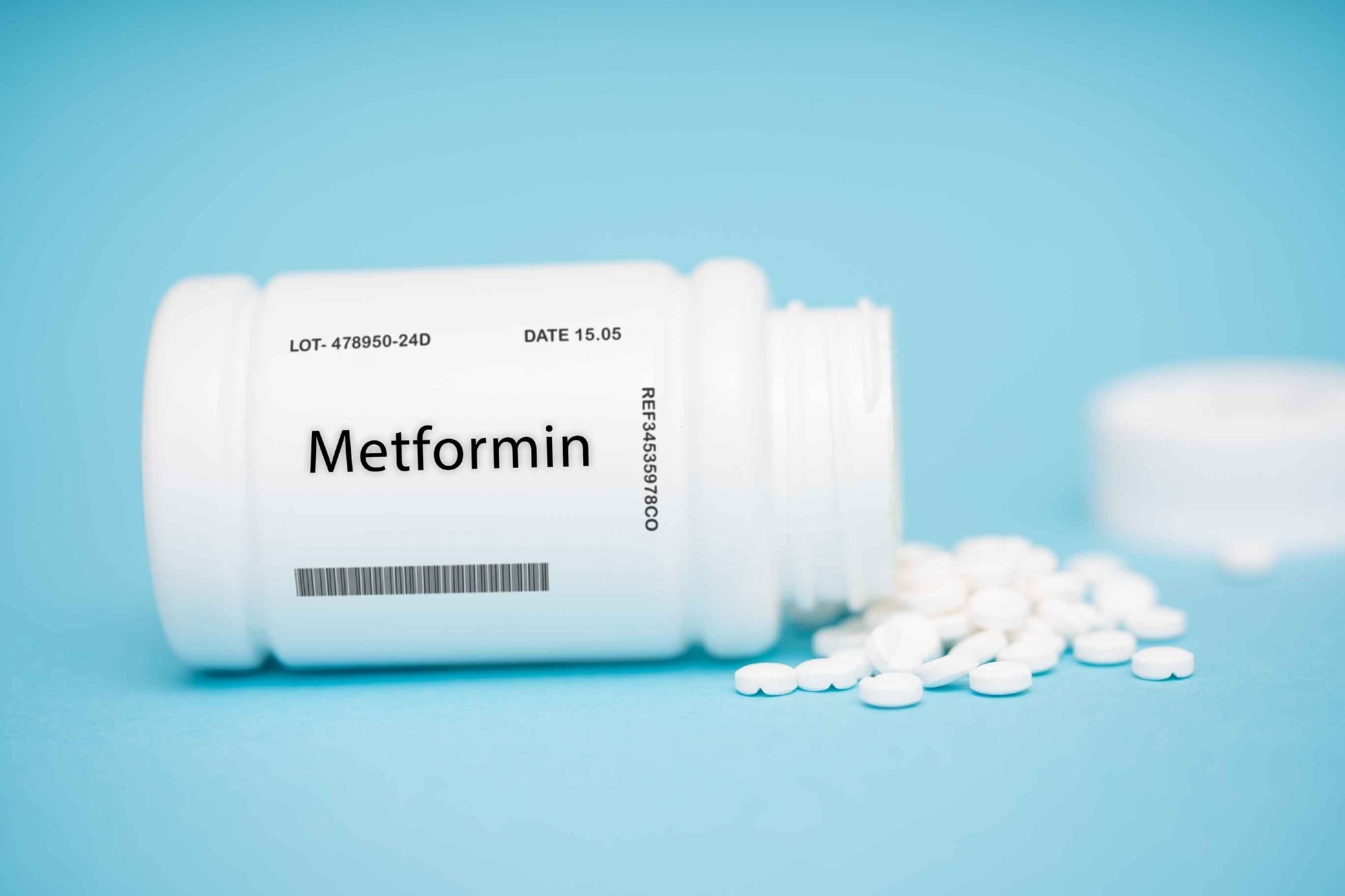Metformin, used for type 2 diabetes (T2D) treatment, reduces blood glucose and suppresses appetite. It is prescribed to more than 150 million individuals worldwide. However, the mechanisms of its therapeutic effects are not fully understood. It inhibits complex 1 of the electron transport chain at higher levels. Nevertheless, it is uncertain whether physiological levels of metformin are sufficient for complex 1 inhibition.
Lac-Phe is a metabolite produced by carnosine dipeptidase 2 and has been reported as an appetite suppressant in obese mice. Lac-Phe correlates with weight loss in humans with regular exercise. It also increases in mitochondrial disease and phenylketonuria. Nonetheless, whether Lac-Phe has a role in the appetite-suppressing activity of metformin has not been explored.
 Study: Metformin and feeding increase levels of the appetite-suppressing metabolite Lac-Phe in humans. Image Credit: LuchschenF / Shutterstock
Study: Metformin and feeding increase levels of the appetite-suppressing metabolite Lac-Phe in humans. Image Credit: LuchschenF / Shutterstock
The study and findings
In the present study, researchers reported significant increases in Lac-Phe levels following metformin treatment. The study was conducted between August and December 2019 at Brigham and Women's Hospital. Thirty-three volunteers who were 1) lean without T2D, 2) lean and prediabetic, 3) obese and prediabetic, 4) obese without T2D, or 5) obese with T2D were recruited.
Diabetes was primarily managed with metformin, albeit some participants also received insulin. The team collected sera from participants and performed untargeted metabolomic profiling. This showed notable increases in all N-lactoyl amino acids in the obese T2D group relative to obese participants without T2D. These elevations were not related to body mass index (BMI) but to T2D.
Moreover, Lac-Phe levels were 5.7 times higher in obese T2D subjects than in obese non-T2D volunteers. In addition, these increases were also significant compared to prediabetic individuals. Notably, Lac-Phe levels correlated with the concentrations of other N-lactoyl amino acids. Next, the team analyzed the metabolomic data from the TwinsUK cohort.
Lac-Phe levels in this cohort were elevated in individuals with T2D. Further, there was a robust correlation between metformin and Lac-Phe levels among T2D patients in the Brigham cohort. Notably, while metformin use was a criterion for inclusion, one volunteer lacked detectable metformin levels and had the lowest Lac-Phe levels; the volunteer discontinued metformin.
As such, the team speculated that metformin may elevate serum levels of Lac-Phe in individuals with T2D rather than T2D. This hypothesis was tested using the TwinsUK dataset; each participant had three samples collected during 1997-2012, a period when the role of metformin in T2D was growing considerably.
This enabled analyses of the Lac-Phe trajectories in participants whose metformin and T2D status changed with time. The researchers noted that metformin treatment significantly increased Lac-Phe levels in individuals newly diagnosed with T2D. By contrast, for newly diagnosed diabetic individuals without metformin therapy, there were no significant changes in Lac-Phe levels.
In participants who consistently had diabetes over successive sampling, metformin use caused substantial increases in Lac-Phe levels. On the other hand, those who did not receive metformin lacked significant changes in Lac-Phe levels. Further, the team analyzed two interventional studies from Denmark and Jordan to establish a causal link between metformin use and increases in Lac-Phe levels.
In the Danish study, significant increases in N-lactoyl amino acids were evident following a 12-week metformin intervention in non-T2D and T2D groups. The Jordanian study reported rapid increases in Lac-Phe levels over 36 hours after a single metformin dose, and the peak Lac-Phe concentration corresponded to the maximum metformin concentration.
Within the TwinsUK dataset, Lac-Phe levels correlated highly with the non-fasted state. As such, the researchers speculated whether metformin-related increases in Lac-Phe were influenced by feeding or fasting state. They observed a trend of higher Lac-Phe levels in the fed state. Moreover, while individuals not receiving metformin had lower Lac-Phe levels, Lac-Phe was significantly increased in fed subjects.
Conclusions
Taken together, the study highlighted that metformin elevates Lac-Phe levels. These increases were specific to metformin rather than T2D status and were evident in T2D subjects and healthy individuals. Further, Lac-Phe levels increase postprandially, paralleling other appetite suppressants' patterns. Thus, pharmacological targeting of Lac-Phe could result in a more robust appetite-suppressing effect, leading to a new class of drugs for obesity.